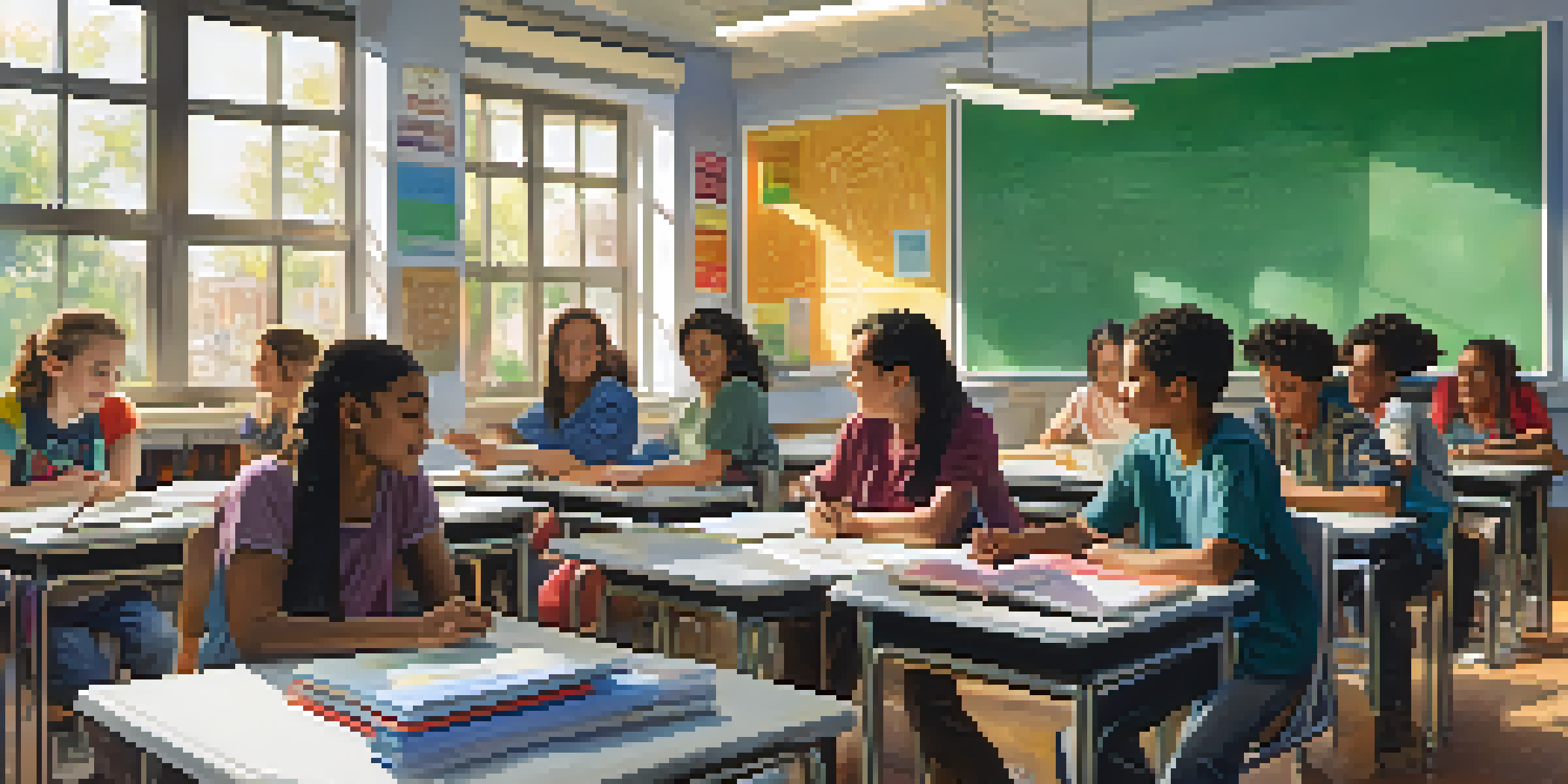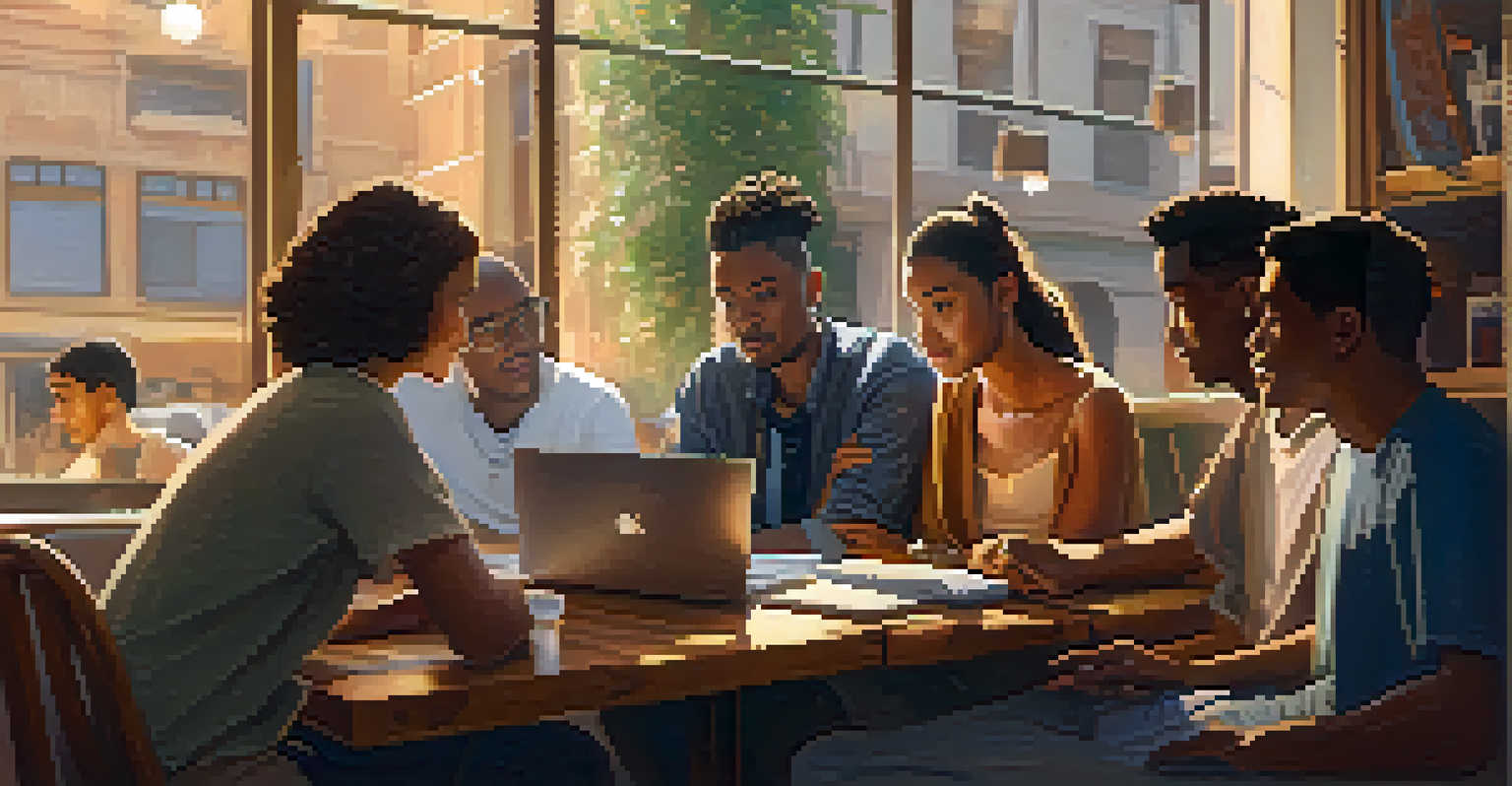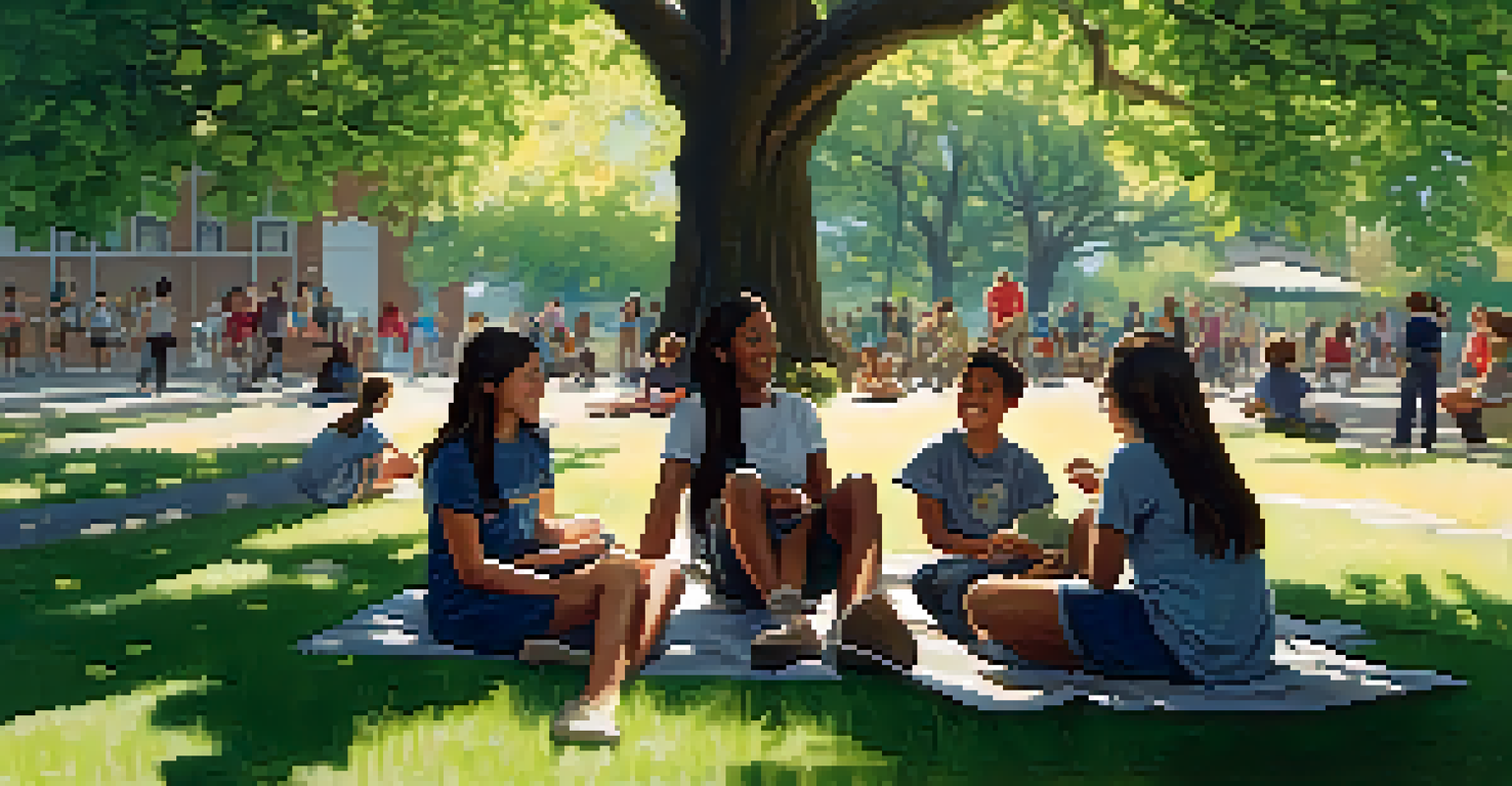The Significance of Peer Learning in Collaborative Education

Understanding Peer Learning in Education
Peer learning refers to the process where students learn from each other, fostering a collaborative environment. This approach not only enhances understanding but also encourages active participation among learners. Imagine a study group where each member contributes their unique perspective, making the learning experience richer and more engaging.
Tell me and I forget, teach me and I remember, involve me and I learn.
In essence, peer learning transforms the traditional classroom dynamic. Instead of a one-way street where the teacher imparts knowledge, it becomes a thriving ecosystem of ideas. This shift not only benefits students academically but also socially, as they develop essential communication skills and build lasting relationships.
Moreover, peer learning can be particularly beneficial in diverse classrooms. By collaborating with peers from different backgrounds, students gain new insights and approaches to problem-solving. This diversity in thought ultimately prepares them for the complexities of the real world.
The Benefits of Peer Learning
One of the most significant benefits of peer learning is the enhancement of critical thinking skills. When students discuss concepts with each other, they are challenged to articulate their thoughts clearly and defend their ideas. This process not only deepens their understanding but also encourages them to consider alternative viewpoints.

Additionally, peer learning promotes a sense of responsibility among students. When they know their peers depend on them, they are more likely to engage fully in the learning process. It's like being part of a team where everyone plays a crucial role in achieving a common goal.
Benefits of Peer Learning
Peer learning enhances critical thinking, promotes responsibility, and fosters social connections among students.
Furthermore, the social aspect of peer learning cannot be overstated. Students build friendships and networks that provide support and motivation. These connections often extend beyond the classroom, enhancing their overall educational experience.
Challenges of Implementing Peer Learning
Despite its benefits, peer learning is not without challenges. One significant hurdle is the varying levels of knowledge among students. When a more advanced student works alongside a peer who struggles, it can lead to frustration rather than productive learning.
Alone we can do so little; together we can do so much.
Moreover, some students may feel uncomfortable speaking up or sharing their ideas within a group. This hesitation can inhibit open dialogue and diminish the effectiveness of peer learning. Imagine a shy student who knows the answer but fears judgment; their knowledge remains untapped.
To combat these challenges, educators must foster an inclusive environment. Establishing ground rules that encourage respectful communication and ensuring balanced group compositions can help create a more equitable learning experience.
Strategies to Enhance Peer Learning
To make peer learning more effective, educators can implement structured activities that guide interactions. For example, assigning roles within groups can ensure that every student contributes meaningfully. This approach not only holds students accountable but also builds their confidence in sharing ideas.
Another effective strategy is to incorporate technology into peer learning. Online discussion boards and collaborative tools allow students to engage with their peers outside the classroom. Imagine a platform where students can share resources, ask questions, and provide feedback at their convenience.
Challenges in Peer Learning
Varying knowledge levels and student hesitance can hinder effective peer learning experiences.
Lastly, regular reflection on group dynamics can help identify areas for improvement. Encouraging students to express their thoughts on what worked and what didn’t fosters a culture of growth and adaptability. This continuous feedback loop ultimately enhances the peer learning experience.
Peer Learning and Lifelong Skills
Engaging in peer learning helps students develop skills that extend beyond academics. Collaboration, communication, and critical thinking are essential skills in today’s workforce. When students learn to work together effectively, they are better prepared for the collaborative nature of many professional environments.
Additionally, peer learning fosters adaptability. As students encounter different perspectives, they learn to navigate and embrace change. This flexibility is invaluable in a rapidly evolving job market where the ability to pivot can make all the difference.
Finally, peer learning cultivates a sense of empathy. Understanding a peer’s challenges and perspectives helps students become more compassionate individuals. This emotional intelligence is crucial not just in the workplace but in all areas of life.
The Role of Educators in Peer Learning
Educators play a pivotal role in facilitating effective peer learning experiences. Their guidance is crucial in establishing a positive classroom culture where students feel safe to express their ideas. By modeling collaborative behaviors, teachers can set the tone for interactions among students.
Moreover, educators should actively monitor group dynamics and provide constructive feedback. By observing how students interact, teachers can identify any issues and intervene when necessary. This active involvement ensures that peer learning remains productive and inclusive.
Role of Educators in Learning
Educators are vital in guiding peer learning, fostering a positive environment, and encouraging student ownership of their learning.
Finally, educators can encourage students to take ownership of their learning. By empowering them to lead discussions or present findings, teachers foster confidence and independence. This shift not only benefits the individual but enriches the entire classroom experience.
Future Perspectives on Peer Learning
As education continues to evolve, the significance of peer learning will only grow. With the rise of collaborative technologies and diverse learning environments, the potential for peer learning is limitless. Imagine classrooms where students connect globally, sharing insights and experiences across cultures.
Moreover, as educational methodologies shift towards student-centered learning, peer learning will be at the forefront of this transformation. Students will increasingly rely on each other as key resources in their learning journeys, creating more adaptable and resilient learners.

Ultimately, embracing peer learning is not just about academic success; it's about preparing students for the complexities of life. By cultivating a culture of collaboration, we empower future generations to thrive in an interconnected world.